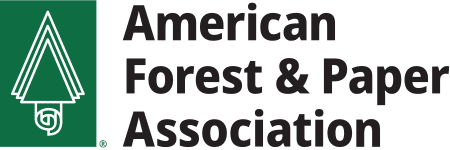Spotlight: Women in the Paper and Wood Products Industry from Domtar
Women hold a wide variety of roles throughout the paper and wood products industry, and they are essential in guiding the manufacture of many of the products that we rely on every day. To continue our celebration of the contributions these women make for the industry, we interviewed notable women throughout our membership and produced a series of their responses. They shared what attracted them to the industry, the importance of female perspectives and why others should feel compelled to be a part of it.
This spotlight will focus on three women from Domtar: Lisa Yankie, Vice President, Human Resources; Kathy Collins, Director of Environment, Pulp & Paper Division; and Marie Cyr, Pulp Mill Manager.
Why did you get into the paper and wood products industry?
Lisa: I have worked in manufacturing most of my career, in the automotive and engineered services industry. It was truly gratifying expanding into an industry with such a rich history and potential to produce a diverse set of products and services for customers globally.
Kathy: I grew up on a dairy farm in Wisconsin with one sister, and I guess you can say I grew up a Tom Boy. My first job out of college was at a small paper mill where I was a Process/Environmental Engineer, including supervising the Wastewater Treatment Plant. I was 22 years old, supervising a crew with 20+ years of experience. In that situation, I learned to ask a lot of questions, knowing that I wasn’t the “the expert”. I came to Domtar in 2013 as the Environmental, Health & Safety Manager for the Rothschild Mill. I was promoted to the mill’s General Manager in 2015 and was named TAPPI/PIMA Mill Manager of the Year in 2018. In 2017, I took on the position of Director of Environment for Domtar’s Pulp & Paper Division, focused on environmental operations at our 13 mill sites across the US and Canada.
Marie: I was raised in a pulp and paper family (dad, uncles, cousins), living in a small town where everyone was working at the mill. I am what they call a Domtar baby. We followed the career of my dad through different roles and responsibilities. This was one of the reasons I applied in a pulp and paper industry because I knew all about it and decided to follow in my dad’s footsteps. He had the chance to evolve through the company, and I thought I could do the same.
What does a woman’s perspective bring to the table?
Lisa: Studies show that having a diverse workforce leads to greater business outcomes; including improvements in company brand, improvements in operating margin and development of innovative solutions. In my 25 years working in human resources across multiple industries, I feel women generally tend to have higher organizational skills, empathy and listening skills, and conflict resolution skills. All of those lead to greater collaboration and teamwork, which produce even more impactful business outcomes.
Kathy: I’ve never really given much thought to “being a woman” in the industry. When I “categorize” myself, I think “engineer” or “environment”, more focused on my skills than being a female. Early in my career, I do recall looking around the room and realizing I was the only female, however it was merely an observation, not a barrier or challenge to me. Every mill I’ve worked in had older females working in maintenance or operations jobs on the floor. They were the pioneers, and I’m sure had a harder road to travel in those situations!
Marie: We have a different way of thinking; our leadership is often team and people oriented. We take the time to understand, build relationships, analyze and focus everyone’s efforts in the same direction. I try to use mission-oriented leadership or management, let them know my vision and understand the company’s objectives, challenges and help them to achieve the objectives without giving them the road to follow. It is important that my employees know they are never alone to make difficult decisions and that I will support them. We get better solutions in a group with various points of view.
Why should women be part of this industry?
Lisa: As the industry evolves, we need to be proactive to diversify our products and services to meet the growing demands of the marketplace. Inclusion of women creates a platform for innovation and growth to prosper in the future.
Kathy: A DIVERSE mix of people will make our industry strong. Innovation, creativity and new ideas will carry us forward, in this ever-changing economy and society. Individuals from differing backgrounds will provide multiple perspectives and should be able to challenge each other constructively to drive our industry to success in the future.
Marie: We bring diversity to a team, softness to discussions and tend to let our people shine. We have the capacity to add elements to simplify problem solving. Women are working for their people so they have the ability to rapidly gain the trust of the employees.
